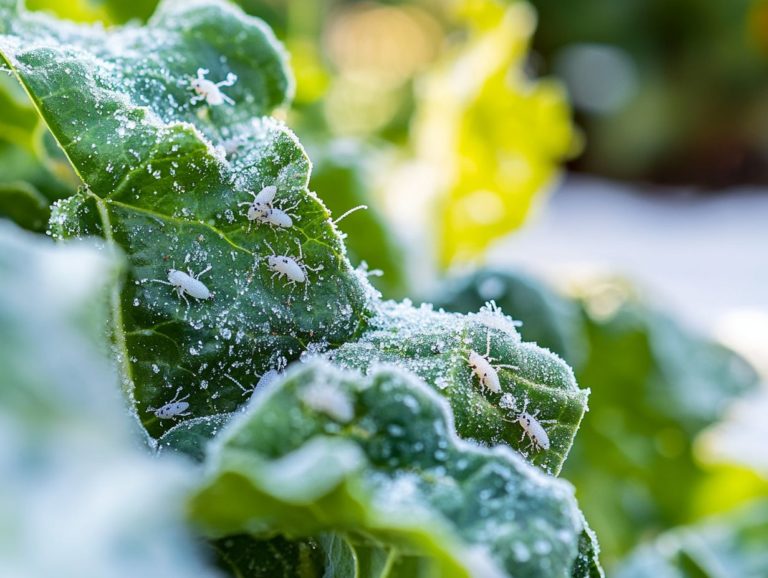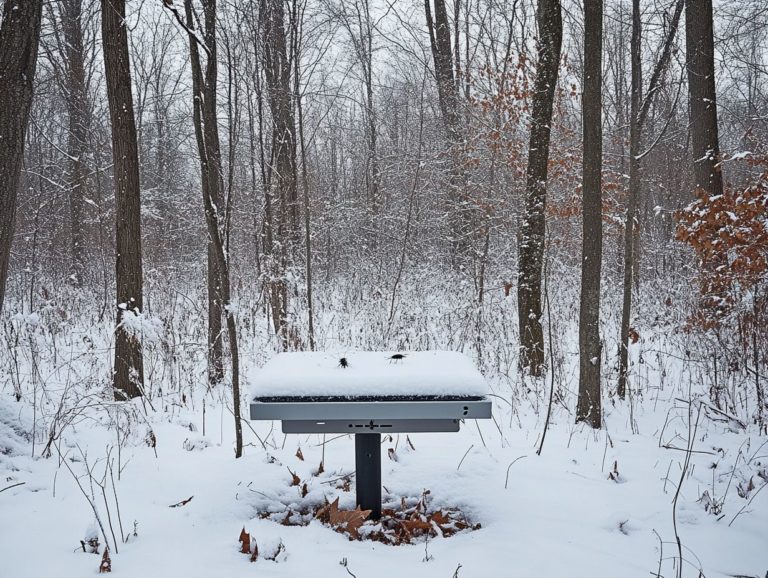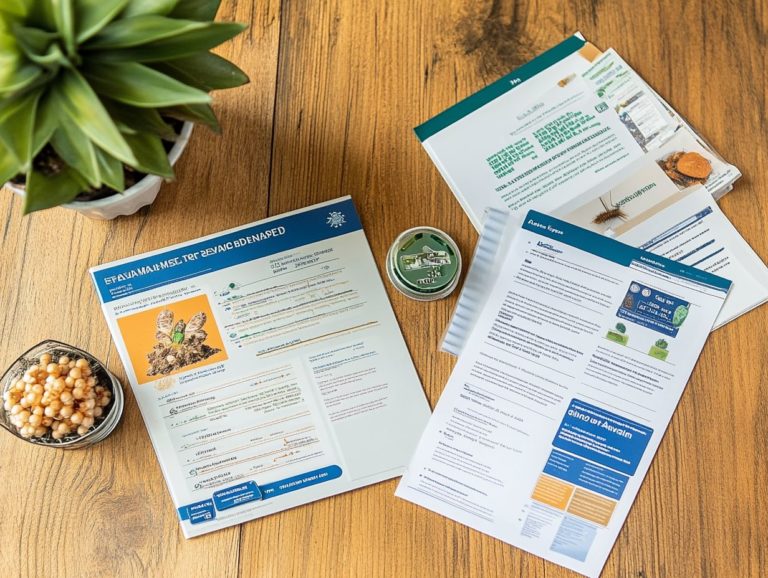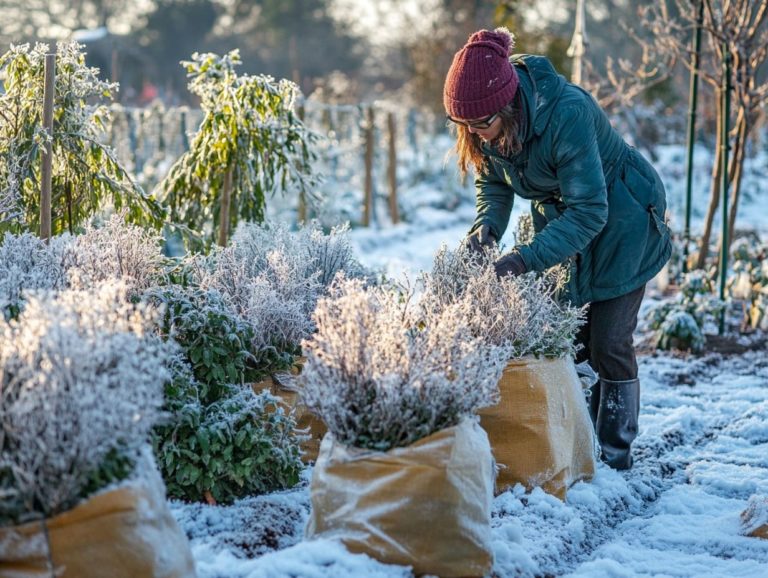Best Practices for Winter Pest Control
As winter descends, you may find yourself nestled indoors, but it s important to remember that you re not the only one seeking warmth. Pests often take this opportunity to invade your cozy space. Understanding who they are and how to manage their presence is essential.
This article delves into the common winter pests that may invade your home. We ll offer effective prevention strategies along with both natural and chemical control methods. From sealing off entry points to addressing specific nuisances like rodents and spiders, let s dive into how you can keep your home cozy and pest-free this winter!
Contents
- Key Takeaways:
- Understanding Winter Pests
- Preventing Winter Pest Infestations
- Natural Pest Control Methods
- Chemical Pest Control Options
- Dealing with Specific Pests in Winter
- Frequently Asked Questions
- What are the best practices for winter pest control?
- How can I keep pests out of my home in winter?
- Can I use chemical pesticides for winter pest control?
- What steps should I take to keep my home pest-free during winter?
- Are there specific pests that are more active during winter?
- Don t take chances should I still schedule pest control services during winter?
Key Takeaways:
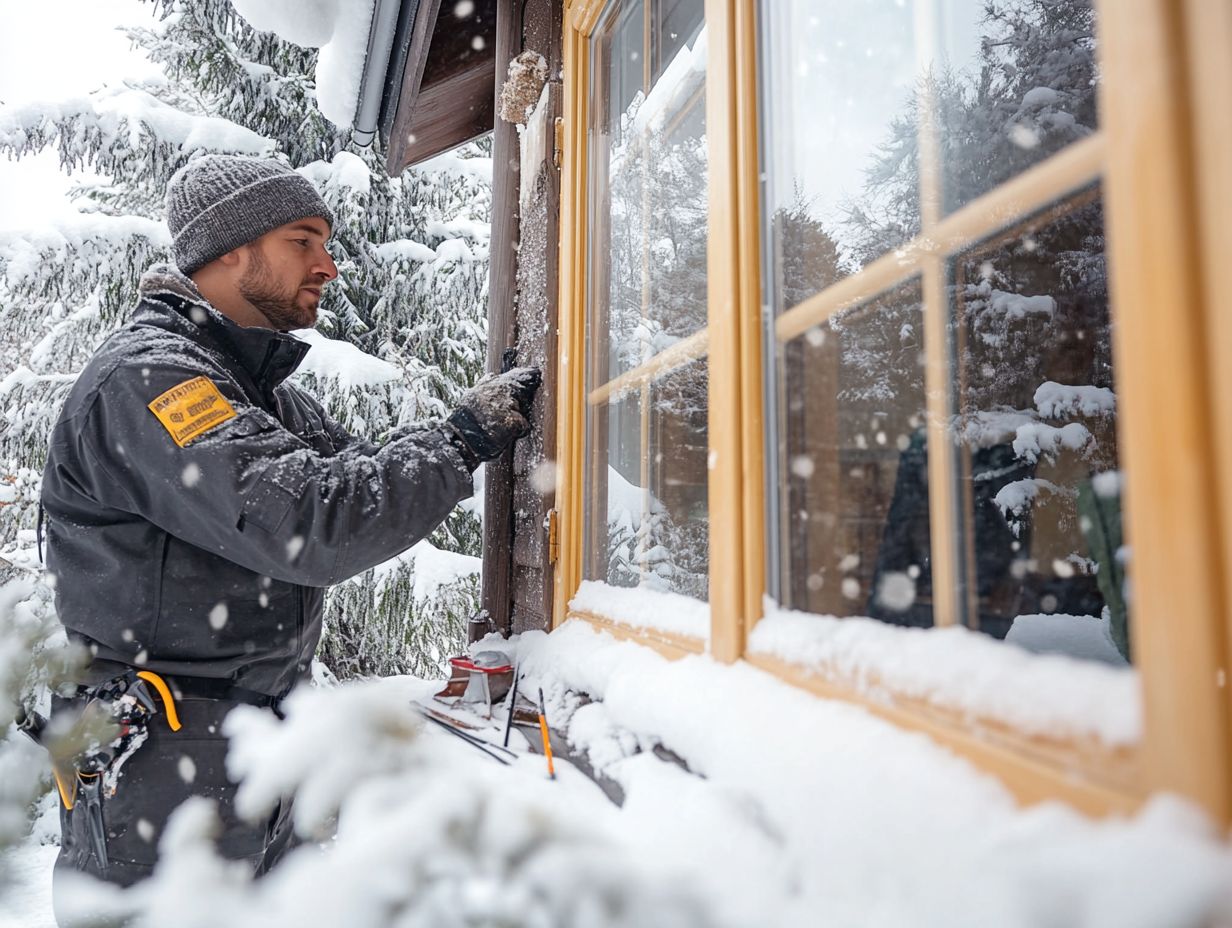
- Seal entry points and maintain cleanliness to keep winter pests away.
- Explore eco-friendly pest control options before using chemicals.
- Have specific strategies ready for common winter pests like rodents and spiders.
Understanding Winter Pests
Understanding winter pests is essential for effective pest management. The cold weather drives these unwelcome visitors indoors. During winter, various pests seek refuge, resulting in heightened activity within homes. This can lead to significant damage if left unaddressed.
Common winter pests like cockroaches, mice, and spiders are drawn to sources of moisture and warmth. It’s important for homeowners to be vigilant about sealing off entryways to avoid infestations.
Pest control professionals can be a highly effective strategy for tackling these seasonal challenges.
Common Pests During Winter
Common winter pests that may invade your home include cockroaches, mice, and spiders. Each brings its own set of challenges.
As the temperatures drop, these unwelcome guests are on the hunt for warmth and shelter, often slipping through tiny cracks and openings in your living spaces. Cockroaches, with their nimble bodies, are particularly fond of kitchens and basements, where they can easily find food and moisture. Mice prefer to build their nests in hidden corners, like attics or behind appliances, making them difficult to spot. Spiders, though small, are experts at infiltrating homes and tend to spin webs in quiet, undisturbed areas.
To keep these invaders at bay, employing effective pest control products such as traps, repellents, and baits can significantly reduce pest activity. This ensures your home remains comfortable and pest-free throughout the colder months.
Preventing Winter Pest Infestations
To prevent winter pest infestations, you must take action early. This includes implementing effective pest prevention strategies, sealing off entry points, and maintaining a consistent cleaning schedule, as well as learning how to use natural pest control in winter.
By doing so, you can create an environment that’s less inviting to unwanted guests during the colder months.
Sealing Entry Points
Sealing entry points is a crucial step in pest-proofing your home. This significantly minimizes the chances of winter pest infestations.
By systematically identifying and addressing cracks and gaps around your windows, doors, and utility pipes, you can create a formidable barrier against unwanted visitors. Regularly inspecting these areas for any signs of wear or damage is essential.
Using caulk or weather stripping can effectively seal smaller gaps. For larger spaces, foam insulation may be beneficial.
Pest professionals, like Kness Pest Defense, are invaluable in this process. They bring specialized knowledge and tools that ensure thorough sealing. With their expertise, you ll cultivate a pest-resistant environment, transforming your living space into a safer haven during the colder months.
Don t wait! Start pest-proofing your home today to keep it safe and cozy this winter!
Keeping a Clean Environment
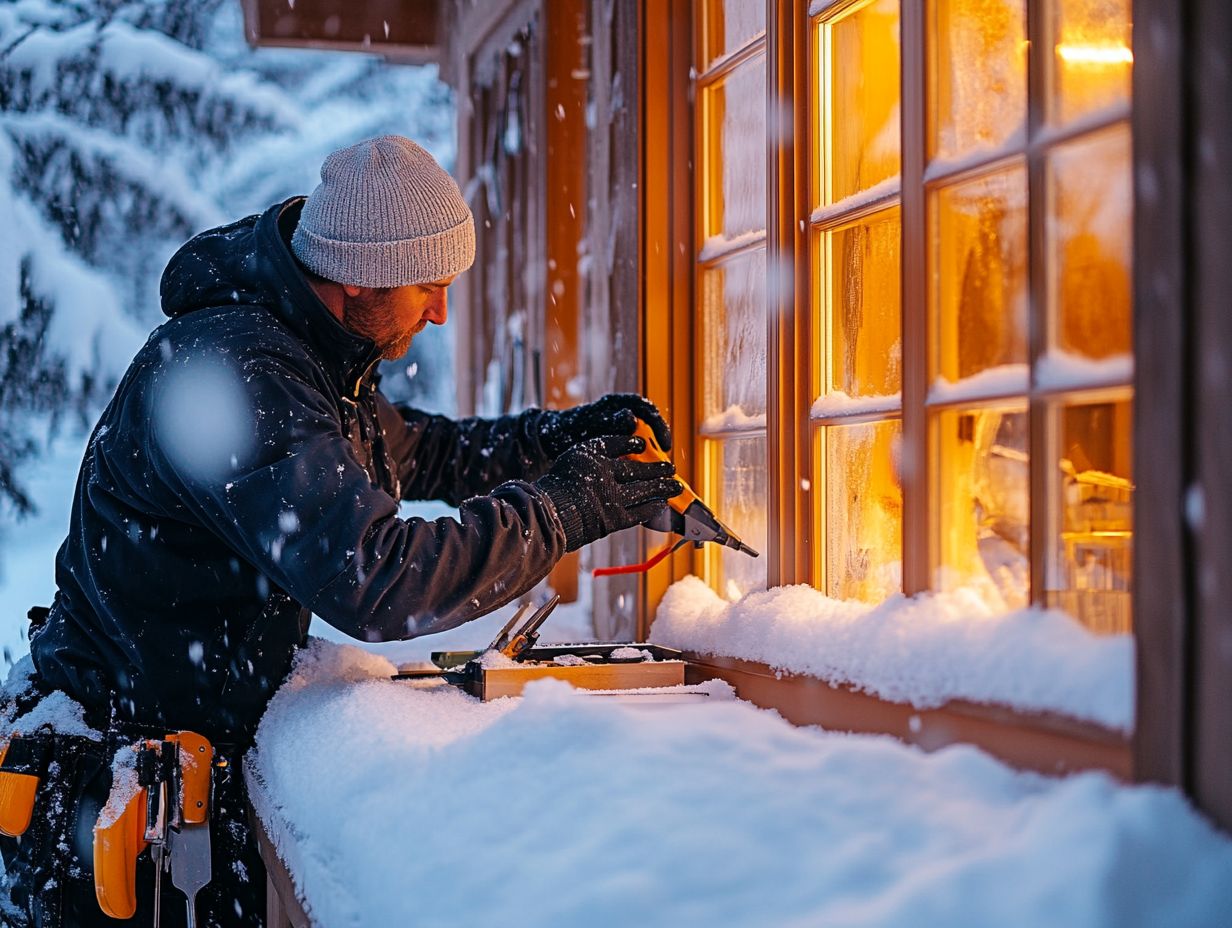
Maintaining a clean environment is essential for effective pest prevention. Establishing a regular sanitation schedule not only ensures food safety but also eliminates potential attractants for pests.
This means employing proper food storage techniques, like using airtight containers and clearly labeling items with expiry dates. It also involves dedicating time to dispose of waste systematically. Regularly clearing out expired food and keeping surfaces pristine significantly reduces the chances of unwelcome visitors.
By organizing clutter, you can greatly lessen the number of potential hiding spots for pests, creating a less appealing environment for them.
To further bolster these efforts, consider integrating pest monitoring devices as a proactive strategy. This approach keeps you vigilant, allowing you to address any issues before they escalate into larger problems.
Natural Pest Control Methods
Natural pest control methods offer you eco-friendly solutions to tackle winter pests without resorting to harsh chemicals. This makes them an appealing choice for homeowners who prioritize environmental responsibility.
Eco-Friendly Solutions
Eco-friendly solutions for pest control encompass natural repellents and habitat modifications that keep pests at bay while nurturing the environment.
For example, diatomaceous earth is highly effective against winter pests like ants and cockroaches, dehydrating them upon contact with remarkable efficiency. You might consider homemade mixtures, such as a blend of vinegar and water, which can effectively deter spiders and rodents. Essential oils like peppermint and lemon naturally repel unwanted insects.
These approaches not only protect your home but also contribute to the preservation of the ecosystem, making them ideal for anyone who values a healthy living space free from harmful chemicals. By embracing these environmentally friendly strategies, you can achieve effective pest management while championing sustainability.
Chemical Pest Control Options
Chemical pest control options can indeed prove effective for managing serious infestations during the winter months. However, it’s crucial to use them judiciously and consider preventing indoor pests during winter, ideally under the guidance of pest control experts who can provide the necessary insights and precautions.
When to Use Chemicals
Understanding when to resort to chemical pest control is crucial for effective pest management and should stem from careful observation and professional expertise offered by pest professionals.
In instances where infestations spiral beyond manageable limits, or when notorious pests like bed bugs or termites jeopardize your home and health, chemical intervention becomes urgent. It’s vital to be attuned to the signs of a significant infestation, such as excessive droppings or a marked uptick in pest activity.
Partnering with pest control professionals allows you to grasp the safest and most effective application methods. They will provide you with essential guidelines for responsible chemical use, ensuring that the impact on beneficial organisms and the surrounding environment is kept to a minimum while effectively tackling the urgent threats posed by invasive pests.
Dealing with Specific Pests in Winter
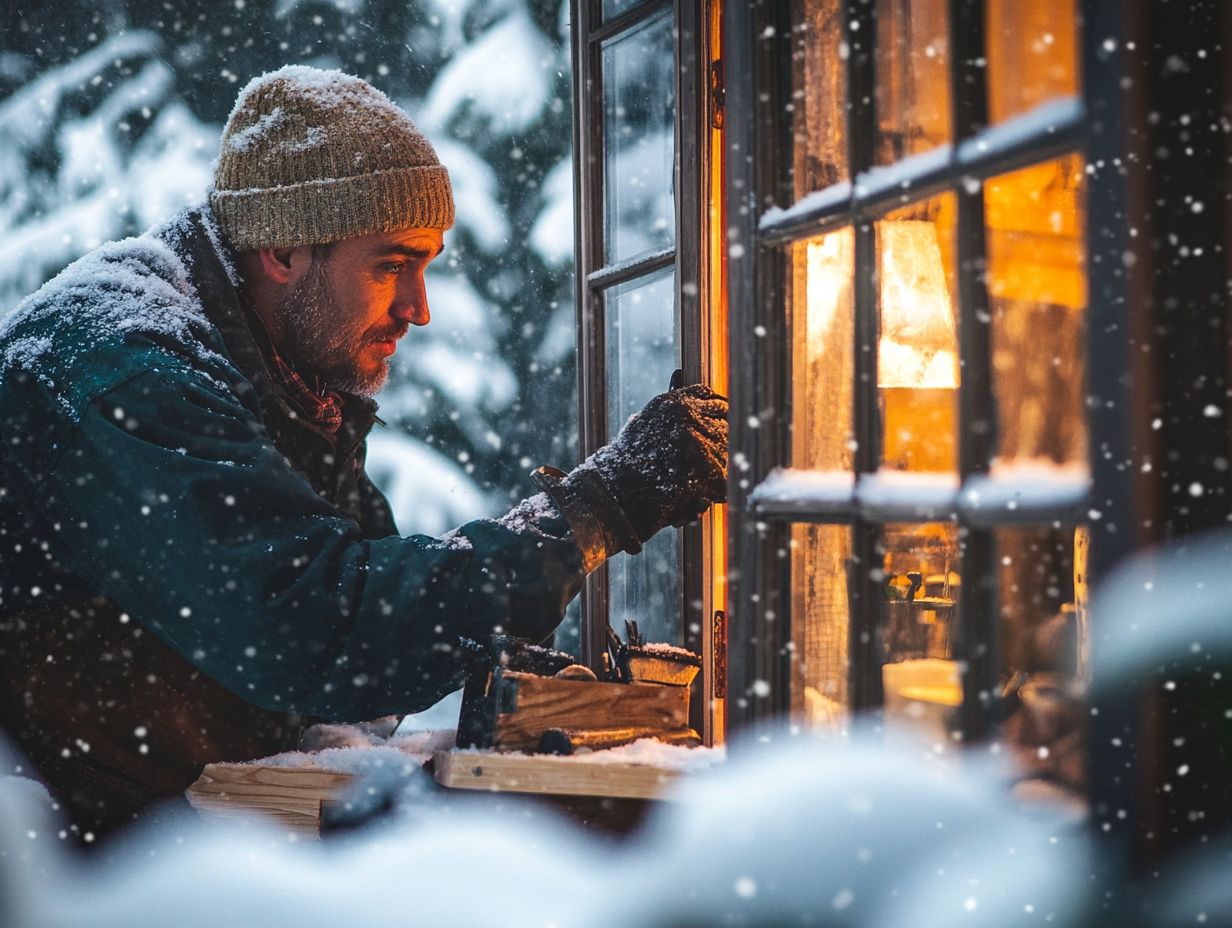
Addressing specific pests during winter necessitates targeted strategies, such as the top cold-climate pest management strategies, designed to tackle the unique challenges presented by cockroaches, mice, and spiders.
In summary, maintaining a clean environment, utilizing natural pest control methods, and knowing the best timing for pest control in winter are all vital for effective pest management during winter. Take proactive steps today to protect your home from pests!
Tips for Handling Rodents
Handling rodents like mice demands a thoughtful blend of preventing pests, regular cleaning schedules, and vigilant monitoring, including pest traps, to effectively curtail their populations.
To foster an environment that discourages these unwelcome guests, it s essential to seal off entry points around your home, including pesky gaps in doors, windows, and foundations. Implementing trapping methods, such as snap traps or catch-and-release options, can be quite effective in managing any current infestations you might be facing.
Maintaining rigorous sanitation practices is pivotal in your rodent control efforts. By swiftly storing food in airtight containers and promptly cleaning up crumbs or spills, you can significantly diminish the allure for these pests.
Regularly inspecting your premises for signs of rodent activity and adjusting your strategies accordingly will help you tackle any emerging issues before they escalate into a larger concern.
Managing Insects and Spiders
Managing insects and spiders during winter requires a thoughtful approach using targeted products to control pests. Utilizing essential traps for cold-weather pests and a combination of methods can help effectively reduce their numbers in your home.
As the chill sets in, you may notice a surge in indoor encounters as these pests seek warmth and shelter. A variety of effective solutions are at your disposal to tackle infestations head-on.
Natural methods like diatomaceous earth or essential oils think peppermint and tea tree can deter flying insects without resorting to harmful chemicals. Chemical pesticides made for indoor use can provide immediate relief when the situation demands it.
Regularly seal cracks and employ screens on windows to minimize entry points. This comprehensive strategy harmonizes both natural and chemical treatments, ensuring that you keep those unwelcome winter guests at bay while addressing winter pest control effectively.
Frequently Asked Questions
What are the best practices for winter pest control?
The best practices for winter pest control include removing potential sources of food and shelter, sealing cracks and gaps, preventing pests, and regularly inspecting and cleaning the area.
How can I keep pests out of my home in winter?
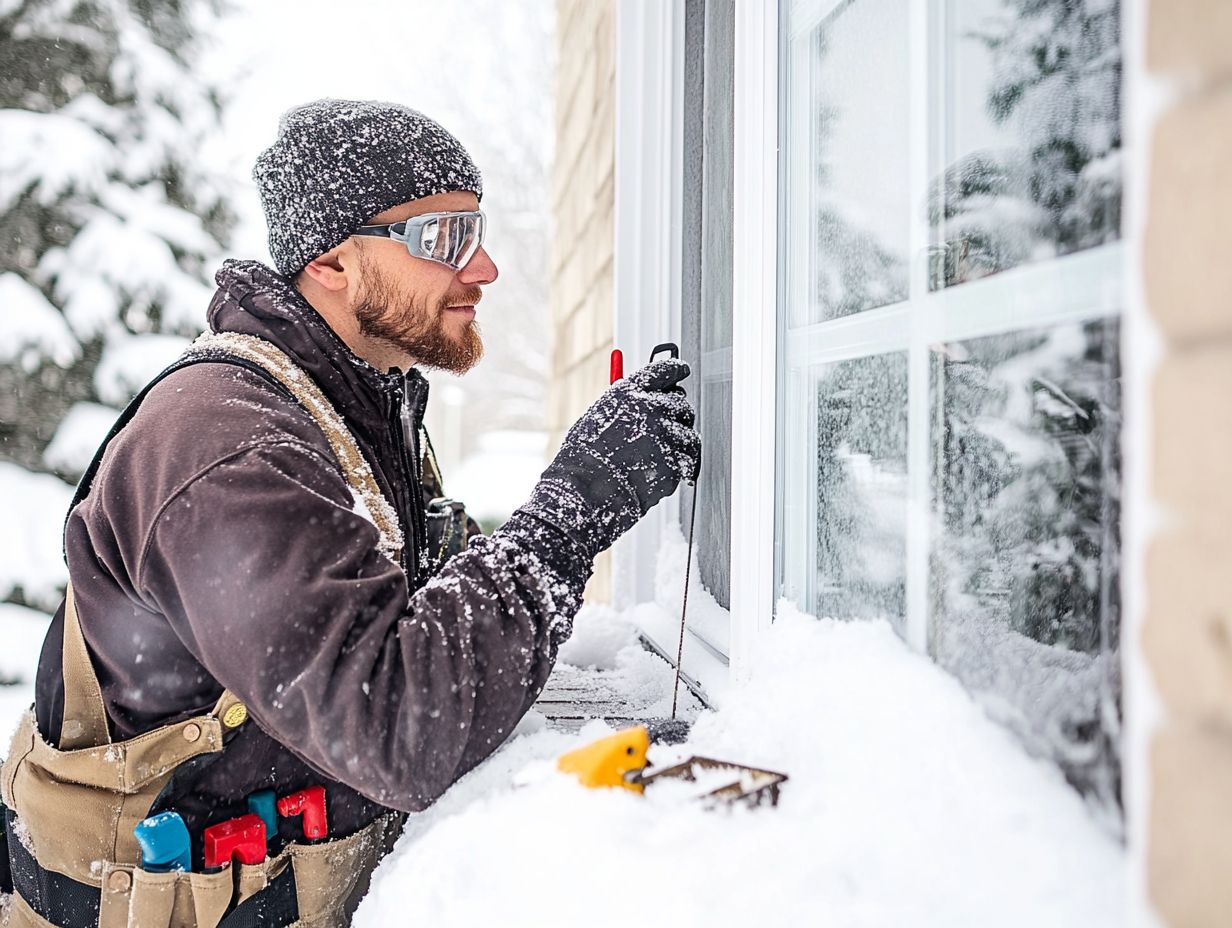
To prevent pests from entering your home during winter, close any openings or gaps, repair damaged screens, and store firewood away from the house to mitigate pest activity.
Can I use chemical pesticides for winter pest control?
While chemical pesticides may be effective, they can also be harmful to humans and pets. It is recommended to use natural and non-toxic methods for pest control during winter.
What steps should I take to keep my home pest-free during winter?
To keep your home pest-free during winter, maintain cleanliness, reduce moisture, and store food properly. Additionally, using essential cold-weather pest management tools can help, along with regularly inspecting and addressing any potential pest entry points.
Are there specific pests that are more active during winter?
Yes, rodents, cockroaches, and spiders are some pests that are more active during winter as they seek shelter and warmth indoors.
Don t take chances should I still schedule pest control services during winter?
Yes, it is advisable to schedule pest control services during winter to prevent any infestations and address any existing pest problems. Professionals have the expertise and tools to effectively control pests during this season, utilizing effective barriers against cold-weather pests.

